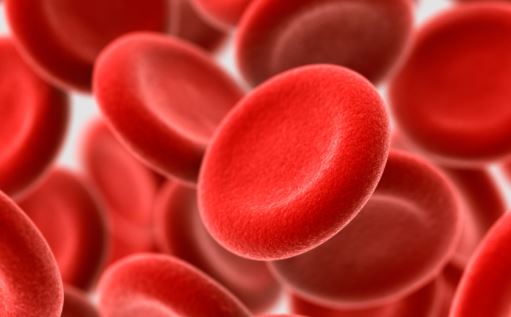Rethinking modern medicine: Dr. Mayer Eisenstein boldly critiques conventional healthcare practices in his book
06/27/2025 / By Kevin Hughes

- Dr. Mayer Eisenstein critiques widely accepted medical practices such as hospital births, routine vaccinations and antibiotic overuse, arguing they may cause harm. His book advocates for evidence-based, natural alternatives.
- He claims medicalized childbirth (e.g., inductions, C-sections) introduces unnecessary risks, citing data that home births can be equally safe for low-risk pregnancies. Standard procedures like episiotomies are criticized as overused.
- While not anti-vaccine, Eisenstein demands rigorous long-term safety studies and individualized schedules. He warns against antibiotic overprescription, linking it to resistance and gut health damage.
- Eisenstein’s book highlights the underpublicized risks of hormonal treatments (e.g., oral contraceptives, HRT) and stimulants like Ritalin, promoting non-drug alternatives (e.g., diet, lifestyle changes).
- His philosophy prioritizes “First, do no harm” and scientific rigor, accusing the medical industry of profit-driven practices. The book urges patient empowerment through skepticism, research and rejecting dogma.
In an era where medical advancements are often hailed as unquestionable progress, one physician is challenging the status quo with a provocative new book. Dr. Mayer Eisenstein, a seasoned doctor, lawyer and public health expert, argues in “Safer Medicine Towards Clinical Scientific Evidence-Based Medicine” that many widely accepted medical practices – from hospital births to routine vaccinations – may do more harm than good.
His critique, grounded in decades of clinical experience, urges both medical professionals and the public to demand stronger evidence before embracing conventional treatments. With over 35 years of experience, including delivering thousands of babies at home without vaccines, Eisenstein presents a scathing assessment of 20th-century medicine’s greatest failures. His book identifies 10 key areas where he believes modern healthcare has gone astray, advocating instead for natural, evidence-based alternatives.
Eisenstein contends that hospital births, often accompanied by interventions like induced labor and cesarean sections, disrupt the natural birthing process. Citing data suggesting that home births can be equally safe for low-risk pregnancies, he argues that medicalized childbirth may introduce unnecessary risks.
Episiotomies, fetal monitoring and other standard procedures come under fire for being overused. Eisenstein asserts that many such interventions stem from outdated protocols rather than robust scientific evidence.
The book criticizes the medical establishment for failing to promote breastfeeding adequately, despite its proven immunological and nutritional benefits over formula. Eisenstein argues that corporate influence and insufficient education have led to a decline in breastfeeding rates.
While not outright rejecting vaccines, Eisenstein urges caution, emphasizing the need for rigorous long-term safety studies. He questions whether current vaccination schedules account for individual health risks, particularly in children.
Eisenstein warns that the overprescription of antibiotics fuels resistance and disrupts gut health. He instead advocates for stricter guidelines and greater reliance on natural immune support.
Oral contraceptives, he argues, carry underpublicized dangers, including heightened risks of blood clots and cancer. Eisenstein encourages women to explore non-hormonal alternatives. He points out that the widespread use of stimulants like Ritalin in children is fraught with risks, including addiction and stunted growth. Behavioral and dietary interventions are often overlooked.
Eisenstein links HRT to increased breast cancer and heart disease risks, suggesting that lifestyle changes should precede pharmaceutical solutions for menopause symptoms. Challenging decades of dietary dogma, he asserts that low-fat, high-carb eating contributes to insulin resistance and obesity, advocating instead for balanced, whole-food nutrition.
Processed low-fat foods, often packed with sugar, have misled consumers. In contrast, Eisenstein insists healthy fats are essential for metabolic health.
Eisenstein’s philosophy hinges on two principles: “Primum Non Nocere“ (“First, do no harm”) and “Show me the scientific evidence.” He accuses the medical industry of prioritizing profit and tradition over patient safety, urging a return to rigorous, independent research.
While his views are controversial – particularly on vaccines and home births – they resonate with a growing movement skeptical of institutionalized healthcare. Critics argue that some of his claims lack consensus support, but supporters praise his willingness to challenge entrenched norms.
“Safer Medicine: Towards Clinical Scientific Evidence-Based Medicine” is more than a critique; it’s a manifesto for patient empowerment. Whether readers agree or disagree with Eisenstein’s conclusions, his book forces a reckoning with uncomfortable questions about modern medicine’s foundations. In an age of increasing medical skepticism, his work underscores a universal demand: Healthcare must prioritize transparency, evidence and above all, the oath to do no harm.
For those seeking to navigate the complexities of medical decision-making, Eisenstein’s challenge is clear: Question boldly, research thoroughly and never assume that conventional always means correct.
Watch this video about Dr. Mayer Eisenstein’s book “Safer Medicine Towards Clinical Scientific Evidence-Based Medicine.”
This video is from the BrightLearn channel on Brighteon.com.
Sources include:
Submit a correction >>
Tagged Under:
Antibiotics, breastfeeding, cesarean sections, healthcare, healthy fats, high-carb, hospital births, insulin resistance, low-fat, Mayer Eisenstein, medical practices, medical violence, obesity, oral contraceptives, ritalin, safety studies, vaccinations, vaccines
This article may contain statements that reflect the opinion of the author
RECENT NEWS & ARTICLES
HealthScience.News is a fact-based public education website published by Health Science News Features, LLC.
All content copyright © 2018 by Health Science News Features, LLC.
Contact Us with Tips or Corrections
All trademarks, registered trademarks and servicemarks mentioned on this site are the property of their respective owners.




















